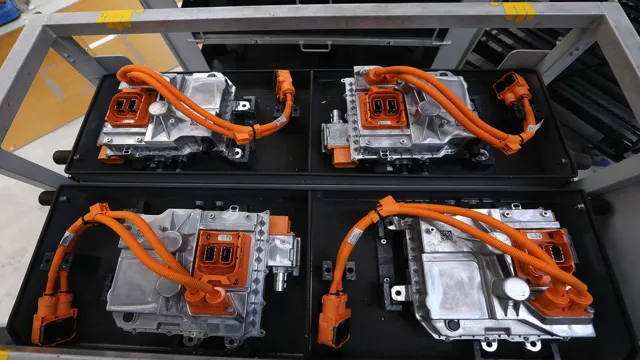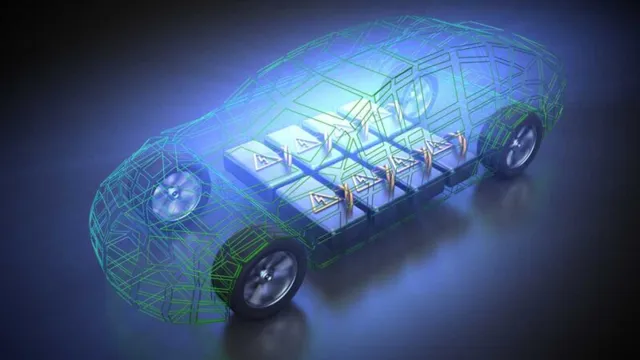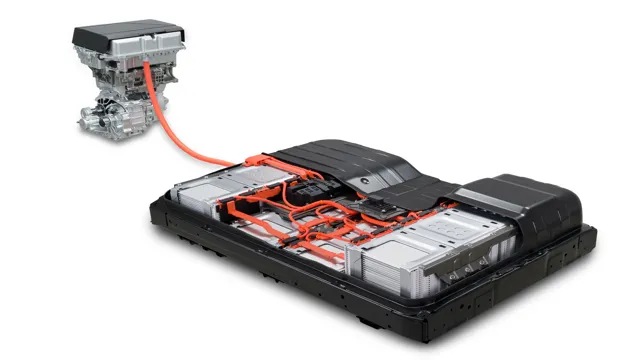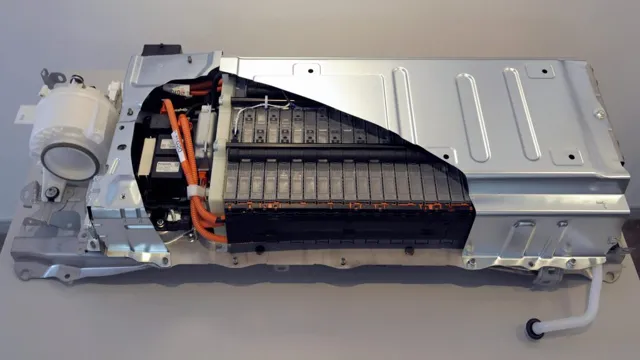The Shocking Truth: Exploring the Real Cost of Electric Car Batteries
Electric cars have been gaining popularity in recent years as people become more aware of the impact of their daily choices on the environment. However, one of the biggest concerns among potential electric car buyers is the cost of replacing the batteries. There is a common misconception that electric car batteries cost a fortune, but how true is this? In this blog post, we’ll compare the cost of electric car batteries to traditional gasoline-powered cars and explore the factors that affect the cost of electric car batteries.
By the end of this post, you’ll have a better understanding of the true cost of electric car batteries and hopefully be able to make an informed decision when it comes to buying an electric car.
Factors Affecting the Cost of Electric Car Batteries
When it comes to electric vehicles, one of the most significant factors affecting their cost is the battery. The cost of electric batteries for cars can vary depending on several factors. One of the primary factors that impact the battery cost is the size of the battery.
Larger batteries, which provide more range, tend to cost more than smaller ones. Another factor that affects the cost of electric vehicle batteries is the technology used in their production. Lithium-ion batteries, for example, are more expensive than nickel-metal hydride batteries.
Additionally, the cost of materials used in the battery, such as lithium and cobalt, can also impact the cost. As technology continues to advance, battery production costs are expected to decrease, ultimately bringing down the overall cost of electric vehicles.
Materials Used
When it comes to the cost of electric car batteries, there are a variety of factors to consider. One of the main factors is the materials used in the production of the battery. Lithium-ion batteries, which are commonly used in electric vehicles, are made up of a combination of metals and chemicals, including lithium, cobalt, nickel, and graphite.
The prices of these materials can fluctuate based on supply and demand, which can impact the overall cost of the battery. Additionally, advancements in battery technology can lead to the development of new materials, which can impact the cost of production. While the cost of materials is just one aspect of the overall cost of electric car batteries, it is an important factor to consider as the industry continues to grow and evolve.

Battery Capacity
As electric cars become more popular, the cost of electric car batteries has become a hot topic. Factors that affect the cost of electric car batteries include the type of battery, battery capacity, and the materials used in manufacturing the battery. The capacity of the battery, in particular, is a critical factor in determining the cost of the battery.
Batteries with higher capacity will typically be more expensive than those with lower capacity. This is because larger batteries require more materials to manufacture and thus cost more. Other factors that can affect the cost of electric car batteries include the cost of research and development, the cost of raw materials, and the cost of labor.
As technology improves and more companies enter the market, we can expect to see the cost of electric car batteries come down over time. Until then, it’s important to weigh the cost of the battery against the potential savings in fuel costs and the environmental benefits of driving an electric car.
Brand and Manufacturer
When it comes to electric car batteries, several factors can influence their cost, with the brand and manufacturer being the primary ones. Some well-known brands like Tesla and Nissan have been developing and producing electric car batteries for years, which means they have more experience and resources to invest in research and development. This, coupled with their reputation for producing high quality and durable battery systems, often leads to a higher price point.
On the other hand, lesser-known manufacturers may offer cheaper battery options, but the quality and reliability may not be as trustworthy. However, it’s important to note that the cost of electric car batteries is declining as demand increases and more companies enter the market. As technology advances, battery prices are expected to continue to drop, making electric cars a viable and cost-effective option for more people.
So, if you’re in the market for an electric car, it’s worth considering reputable brands and manufacturers for the peace of mind that comes with a reliable and long-lasting battery system.
Average Cost of Electric Car Batteries
Are you thinking about buying an electric car but aren’t quite sure about the cost of the battery? Well, you’re not alone. Many potential buyers get confused when it comes to electric car batteries’ cost. On average, the cost of an electric car battery ranges from $5,000 to $7,500.
However, the price depends on the model and the battery’s size. For example, a Nissan Leaf’s battery replacement costs around $5,500, while Tesla’s batteries may cost up to $15,000. It’s worth noting that the prices of electric car batteries have dropped significantly in recent years, making them more affordable than before.
The average cost of electric car batteries is expected to reduce by around 60% in the next decade. With this price reduction, more people will be able to purchase electric cars, leading to a more sustainable future. So, if you’re considering an electric car, don’t let the cost of the battery scare you away!
Tesla Model 3
When it comes to purchasing an electric car, one of the most significant costs is the battery. Many potential Tesla Model 3 owners wonder what the average cost of electric car batteries is and how it affects their budget. The answer varies based on factors such as size, capacity, and technology.
Generally, the cost per kilowatt-hour (kWh) of EV batteries has been steadily decreasing over the years. In 2010, the cost stood at around $1,100 per kWh, while in 2020, it had dropped to $137 per kWh. Furthermore, Tesla is known for having some of the most efficient and affordable electric car batteries on the market.
As of 2021, the average cost of a Tesla Model 3 battery is around $7,000 to $8,000, and it offers a mileage range of approximately 250 to 300 miles. With Tesla continuously investing in research and development, the cost of electric car batteries is expected to decrease even further, making them more accessible and affordable to consumers.
Nissan Leaf
When it comes to electric cars, the battery is arguably the most important component and also accounts for a significant portion of the car’s cost. The cost of electric car batteries, including the Nissan Leaf, has decreased steadily over the years, making electric vehicles more accessible to the masses. On average, the cost of a Nissan Leaf battery replacement stands at around $5,500, which is still considerably high.
However, this cost is offset by the lower cost of maintenance and fueling an electric car compared to gas-powered cars, making the long-term cost of owning an electric car more economical. As technology improves and electric car manufacturing becomes more widespread, the cost of electric car batteries is expected to continue decreasing, making electric cars even more affordable for everyone. So, if you’re in the market for an electric car, keep an eye out for new models and upcoming advancements in battery technology that will further reduce the average cost of electric car batteries, including those for the Nissan Leaf.
Chevrolet Bolt
The Chevrolet Bolt is an all-electric vehicle that has been gaining popularity due to its impressive range and affordability. One of the biggest factors that determine the cost of an electric car is the battery. The average cost of an electric car battery is about $5,500 to $8,000, depending on the make and model.
However, the cost is always changing due to advancements in technology and production. The Chevrolet Bolt has a 60 kWh battery, which can give it a range of up to 258 miles on a single charge. Although the initial cost may be higher than that of a traditional gas-powered vehicle, over time, the cost of maintaining and charging an electric car is significantly lower.
Plus, with the growing number of charging stations, it’s becoming easier and more efficient to own an electric car. In conclusion, while the average cost of electric car batteries can be expensive, the benefits of owning an electric car, such as lower maintenance costs and reduced environmental impact, make it a worthwhile investment.
Saving Money on Electric Car Batteries
Are you interested in purchasing an electric car, but concerned about the cost of electric batteries? Fortunately, there are several ways to save money on electric car batteries. One option is to lease the battery instead of purchasing it outright. This can significantly reduce the upfront cost of the vehicle and may also include battery maintenance and replacement services.
Another option is to purchase a used battery from a reputable source. While this may require some research and careful inspection, it can be a cost-effective solution for those on a budget. Additionally, many automakers offer incentives and rebates for electric cars and batteries, so be sure to check with your local dealership.
Don’t let the cost of a new electric car battery deter you from making the switch to a cleaner, more efficient vehicle. With these money-saving options, you can enjoy all the benefits of electric car ownership without breaking the bank.
Government Incentives and Rebates
Saving Money on Electric Car Batteries with Government Incentives and Rebates Government incentives and rebates can make electric cars and their accompanying battery replacements more affordable for consumers. These incentives and rebates vary by state and province, but can include tax credits, cash rebates, and even exemption from certain tolls and fees. For example, in California, electric vehicle (EV) buyers can receive up to $7,000 in rebates and access carpool lanes without restriction.
In some states, there are also programs that offer discounted rates on charging stations and energy bills. These programs can help reduce the overall cost of owning an EV and increase their accessibility to a wider range of consumers. As more people switch to electric cars, it’s important for governments to continue offering incentives to support the growth of the EV market.
Leasing or Financing
When it comes to buying an electric car, one of the biggest concerns is the cost of the battery. However, there are ways to save money on electric car batteries. One option is to lease the battery instead of buying it outright.
This can provide lower upfront costs and may include maintenance and replacement options. Another option is to finance the battery over time, spreading out the cost and making monthly payments more manageable. Additionally, some automakers offer battery upgrades, allowing you to start with a lower range battery and upgrade later on as needed.
By exploring these options and doing your research, you can find ways to save money on the cost of an electric car battery.
Conclusion
In conclusion, the cost of electric batteries for cars may seem daunting for some, but it’s important to remember that like any technology, the price will come down with time and advancement. Plus, with the many benefits of electric cars such as reducing carbon emissions and saving money on gas, the investment in an electric battery is a smart and eco-friendly choice. So don’t be shocked by the price, embrace the cost of progress and help drive towards a cleaner and more sustainable future!”
FAQs
What is the average cost of an electric battery for a car?
The average cost of an electric battery for a car can range from $5,000 to $15,000, depending on the make and model of the car.
How long do electric car batteries last, and will I need to replace them?
Most electric car batteries are designed to last between 8 and 10 years or around 100,000 miles. After this point, you may need to replace the battery, which can be costly.
Are there any government incentives or subsidies available for electric car batteries?
Yes, in some states and countries, there are incentives and subsidies available for purchasing or replacing electric car batteries. These can range from tax credits to discounts on the cost of the battery.
Can I replace just one part of an electric car battery, or do I need to replace the entire battery?
It will depend on the battery and the specific part that needs to be replaced. In some cases, it may be possible to replace just one part of the battery, such as a faulty cell, while in other cases, the entire battery will need to be replaced.






